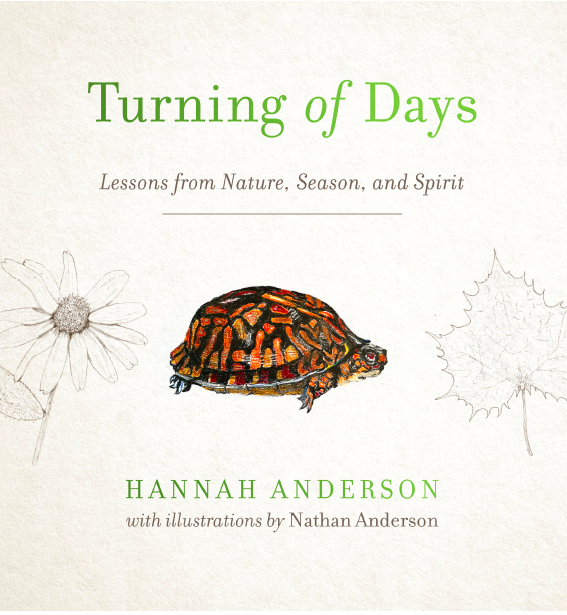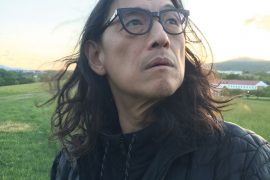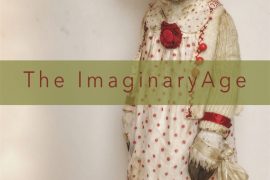Our Managing Editor Alexandria Barbera speaks with Hannah Anderson about her latest book Turning of Days (Moody Publishers, 2021). Both captivating and illuminating, Anderson’s book examines the rhythms and cycles of the natural world from a faith-based perspective, shining a light on its power to enchant, enlighten, and cultivate affection for all Creation.
What was the impetus for writing this book?
This book was born from my last book in which I addressed themes related to humility and rootedness, which incorporated a lot of botanical imagery. My audience really responded to these illustrations just as much as the writing; it felt there was this need for engagement with the natural world. It was like I had unexpectedly triggered something for folks, as if they were responding to an absence in their own lives…. there was a gap, no one had introduced them to the natural world in the way that I had. So already there was this real interest in work that engaged deeply with nature that I picked up on based on my audience’s response to my last book.
In the beginning of the book, you write about your personal connection to the land, in particular the Appalachian landscape. Can you say more about how this setting impacted you as a person, especially in terms of your spiritual development?
My connection to nature and to the Appalachian landscape was something that I took for granted. My husband and I realized that there was this need for a connection to the land among my audience. We both grew up in small homesteading places in Virginia, so we had been given a gift that we didn’t even recognize. And that was simply a childhood shaped by certain ways of being in the natural world. It included gardening, going through the seasonal lives of plants; it included the freedom to roam, freedom to be in the woods, to be in nature, and perhaps in a way the removal of distractions. It wasn’t just that we had the freedom to be in the natural world more often, it was also that we didn’t have other things keeping our attention away from it. So, as adults, there were forces that kept propelling us toward a certain lifestyle; for example, we found ourselves really wanting to live in rural spaces. We didn’t quite understand why, but we felt drawn in that direction, and continued many of the habits passed down to us—although we don’t live off the land to the degree that our parents did. But we have made intentional choices to keep these kinds of rituals and patterns of life we grew up with as adults.
Scriptural allusions and references appear frequently throughout the book. Can you say more about how the Bible informs your relationship with the earth?
The relationship between nature and Scripture is a fascinating aspect of the lives we were given. My husband and I both grew up in devout religious contexts at the same time that we were growing up close to the earth. So I think for us our brains just had these overlapping experiences of being exposed to a great deal of Scripture and being in nature at that same time. And so they just sort of integrated themselves in a way that is really a distinct experience. And so now as an adult the way I understand these two shaping forces in my life is that they do give meaning to each other. There are things that I observe in nature that I then say, “Oh, ok, that broadens and expands and enlarges my understanding of what I read within the scriptural text.” But also because I have this knowledge that I am kind of receiving from the scriptural text, I can’t be out in nature and not have that also looping through my experience of the world around me.
What would you say is the relationship between the natural and the supernatural?
It’s a question I return to regularly. Where I am right now is that these terms natural and supernatural are categories that only make sense to us. The separation and distinction between the two may be a line that we humans have created, but they may not actually exist. As a person of faith, I believe in the supernatural, but I wonder sometimes if that is a category that we have created. What I mean is: what is natural and what is supernatural? What is beyond our material world? What part of reality can we access through the material world? And what part of reality is not necessarily accessed through the material world? Maybe these are better ways of putting it. I think it’s a question of how we’re accessing reality—and both the natural and the supernatural are features of reality—so I would resist attempts to collapse them too much. It’s less about a “natural” reality and a “supernatural” reality, I think, and more about understanding that the mystery of those two realities is rooted in our inability to understand it, it’s unknowable or beyond experience.
Christian theology doesn’t have a great track record prioritizing environmental causes, at least historically. Tell us about the relationship we have as caretakers with a planet that we are dependent on for life.
I do think you’re right that within modern iterations of Christian thought, we don’t necessarily prioritize our responsibility to the earth. It’s more about mankind domineering the earth, or ruling or taming it, and a lot of that has to do with our history of westward expansion and colonialism where the aim is to bring the earth under submission. When I think of it in terms of the categories of Scripture, I see a human partnership with the earth which has been mandated by the divine. I don’t see it as hierarchical—I see it as a partnership where each is doing something different for the other. If I go back to Genesis, the garden is not given to the man to do whatever he wants with it, he has to care for it, and in reverse the garden cares for him. There’s this really interesting linguistic structure in the Hebrew, where there’s this play on words indicating this idea that Adam and Eve would care for the garden and the garden would in turn care for them. We can certainly make arguments for conservation from a pragmatic angle, in the sense that if we ruin this earth, we don’t have another one. And I think that is valid point, but there’s an existential question at the heart of it. If we don’t care for this planet, we won’t be here. But I also think that for me as a Christian, there’s a sense of vocation that goes beyond the realities of place: I am entering into a calling that is greater than me and even my generation. It is a stewardship that has been passed down through humanity. And so I guess what I would hope for Christians is having the humility to understand their responsibility to God for their partnership with Creation.
One recurring motif in the book is the difficulty of rendering the natural world in writing. You tell your reader early on that the book itself is “a bit of a paradox” because “it attempts to use words where nature doesn’t.” What would you say is lost in this process of translating a lived, embodied experience of nature into a written account of that experience? What is gained?
I found myself guided by my goals. What am I hoping this book does? I wanted it to act like a bridge for people who were very comfortable with words to experience a place where there were no words. I recognized that my core audience had a certain set of priorities, things they trusted words, books, and Scripture. So I knew that what I had to do was faithfully present the testimony of nature in a way that my audience could access and have their affections stirred, so that ultimately, they would move beyond the book. I wanted to give them a hint and a taste of what nature communicates, while also recognizing that they needed words to get there. So I felt it was important to provide descriptive accounts of nature and to give myself the freedom to write what I was seeing, to kind of communicate what nature was doing, what it looked like, what it smelled like, even the science behind it. I wanted to describe, but I also wanted to model my own thought process. I wanted my reader to say, “I can engage in that same kind of thoughtfulness. I can see this aspect of nature and these are the kinds of thoughts that it should generate.” I’m really hoping that at the end of the day, when readers read this, I’ve captured their hearts and affections, which I hope propels them outward to engage in the same kind of thoughtful engagement with earth.
I felt extremely immersed in the natural scenes you were describing while I was reading. What was behind your decision to write this book as a memoir? What did this particular form accomplish, what did it facilitate, what did it enable you to do?
Turning of Days was a bit of a departure from my other books. I’ve always maintained a certain level of personal interaction in my writing, but for this book I decided to write more freely and openly and personally. I think this has to do with what I explained at the beginning about my upbringing: I’m sharing specific experiences of the natural world from my own life. I was intentional in modelling for readers that this is what it looks like to observe, reflect, and have deep affection for the natural world around you. My audience trusts me to be a theologically grounded person, they’ve read my other books, they know they’re theologically… safe, I’ll say. But I wanted to show them that this way of thinking and engaging with the world came from the same brain they trust to teach them about humility (or something else). My goal for the writing was for it to facilitate an immediate or personal encounter with Creation: I think if it’s too objective or it’s too distant, you can read the book, you can enjoy it, the content can be interesting to your brain, but then you set it aside and you go about your business. It doesn’t draw you out into the created world in the same way.
How can we find beauty in the terrible and destructive parts of nature, such as wildfires and hurricanes? What do those things say about God?
I think that at this contemporary moment within the Church, we don’t have a good category for suffering, for brokenness, for the wildness of our own lives or the creation. And when I do see people engaging with Creation, there’s almost this inspirational, sentimental quality to it. It’s like “oh I went outside and it made me feel calm and peaceful, and I feel lifted up.” And I say to myself, we must not be going into the same nature, because when I go out into nature, and I’m working on my garden, I feel a struggle; it is a place of peace, but it’s also a place of profound disappointment and helplessness. And I think we need to be truthful about that. So part of what I hope to do within the book is just crack that category of suffering and wildness open for my audience; I think there’s a lot more to be said about the destructive forces that exist within the natural world. Insofar as I approach them or touch on them, I was hoping just to open the category up for people and say “actually, it’s pretty awful when you spend all of this time cultivating something and then this happens to it.” Or it’s pretty awful when your cat brings in the dead bird. Yes, that’s just nature, but also, it’s not. I mean I have tamed this cat, I have fed the birds, I’ve invited them to come together and then they destroy each other! So I just feel that telling the truth is the first step, and reconciling all these contradictions is probably the task of philosophers, but for me, I saw my role in this book as simply acknowledging this, to nudge people to tell the truth about it first.
Would you say writing this book was a practice of faith for you? What advice would you give to writers wanting to write in more devotional, sacred-oriented ways?
With this book in particular, I found myself releasing a little bit of control over the writing. I tend to be a very measured writer, I chart out my ideas, I’m hands-on and fiddle with words, always micromanaging the process. About a year ago, a friend had jokingly suggested to me that I needed to write “at 75% capacity.” For me this meant that it’s important to relinquish a bit of control in the writing process, to trust the story, my own ability to tell it, and for me, a God at work in the midst of that process. That relinquishing control was making space for a level of creativity and communication that I don’t think my other works exhibit. And I think that this could have only happened for me while writing about this topic. Coming back full circle to the kind of freedom I experienced as a child, growing up immersed in the natural world, writing this book kind of reawakened in me some of that freedom of just being able to wander. It really brought back this childhood experience of feeling the space of nature, feeling its elements. I finished the manuscript and all I could think about was how much I wanted to do that again. That’s the kind of freedom I want in my writing, the kind that taps into this invitation to come and roam, to come and find.





